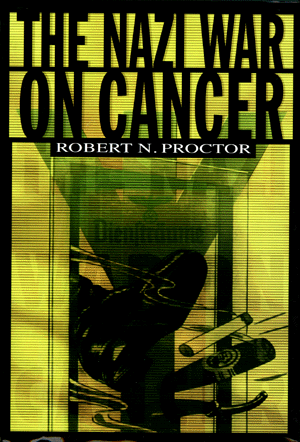In the 1930s, scientists sponsored by the Nazi government in Germany found a conclusive causal link between smoking and cancer (The Nazi War on Cancer). Yet because the research was published in German, the language and cultural barriers meant that the research went unnoticed by health authorities in the US, Australia and other countries who were desperately looking for hard evidence to attack the claims by tobacco companies that cigarettes were not harmful.
This is but one example of a broader problem that still faces the scientific world today. Stolerman and Stenius (2008) contend that language is a major barrier preventing the diffusion of important research around the world. English is the lingua franca of science, yet given that only 25% of people speak English globally, many countries are being shut out of scientific discourse.
For instance in Brazil, scientists publish 50,000 articles per year (ref). Yet only 18,000 of these articles are indexed in Web Of Science, the pre-eminent scientific article database. Even amongst the articles indexed in Web of Science, many of them are likely to be ignored by scientists in English speaking countries due to clunky expression and faulty grammar (only 33% of Brazillian scientists self-rated their English as good).
A case study: ridesharing research
My sister was the one who first alerted me to this problem. She pointed out that given that Germany has such a strong ridesharing culture, there'd probably be a lot of research into ridesharing written up in German. Sure enough when I searched for 'mitfahren' in Google Scholar, I found almost as many articles as when I search for 'ridesharing' or 'carpooling'. That's good news for me because I've found a new source of information to tap into (I read and speak German). However, it's bad news for the rest of the ridesharing research community who may be spending lots of time and money 'rediscovering' things that have been common knowledge in Germany for decades.
I even found one article in Spanish regarding attitudes to ridesharing that fills a gap in the literature from the US.
What can be done?
There are some positive moves in Brazil, where a bunch of the most promising journals have been grouped under the government sponsored SciElo program (ref). As well as improving the editorial rigour of the journals and prettying them up so they meet best practice standards, SciElo also encourages the journals to publish English and Portuguese translations of every article. It's expensive to do this right now (the Portuguese articles would have to be manually translated) but as automated translation improves, it will become possible to translate every single article and make them publicly accessible via open access journals.


No comments:
Post a Comment